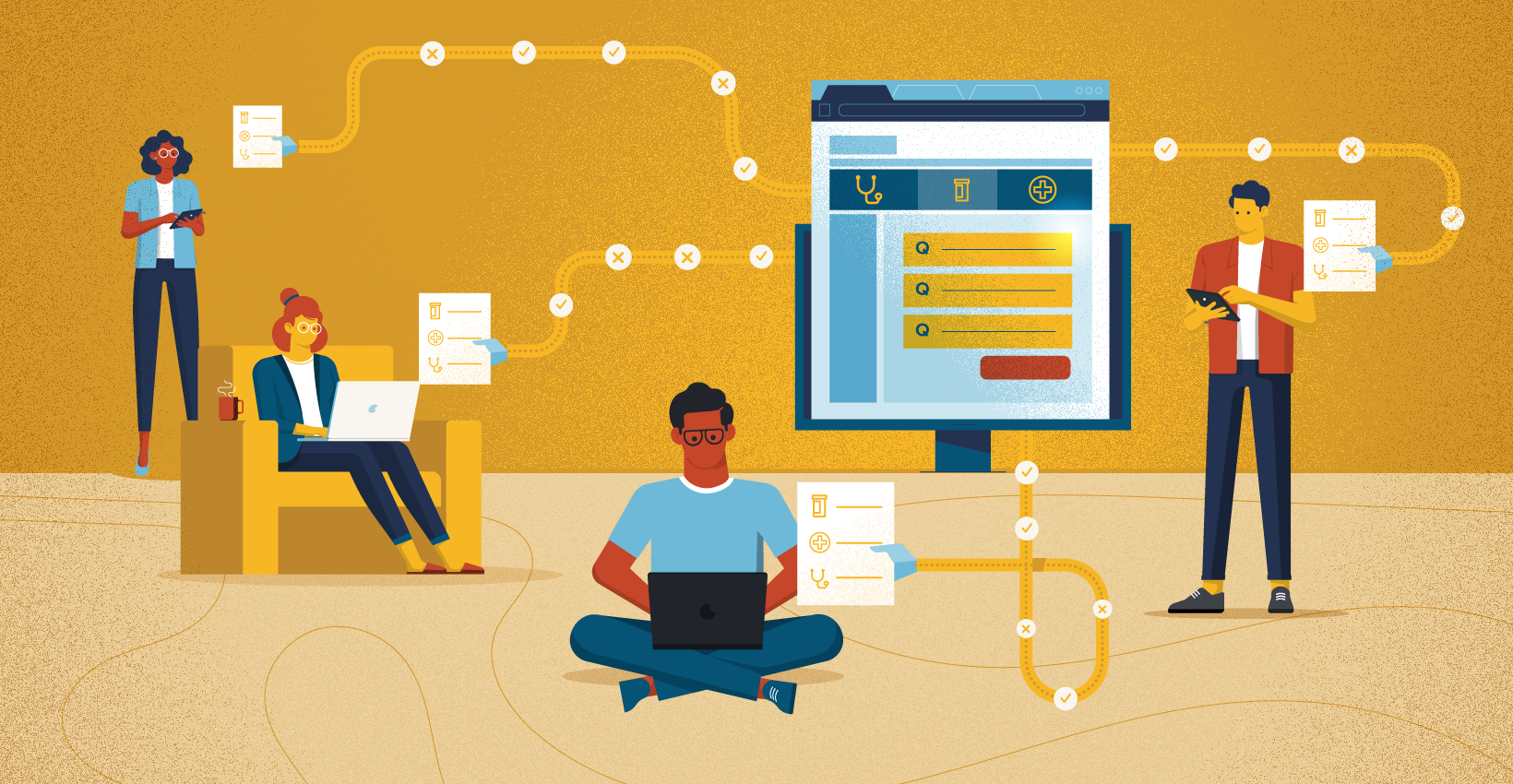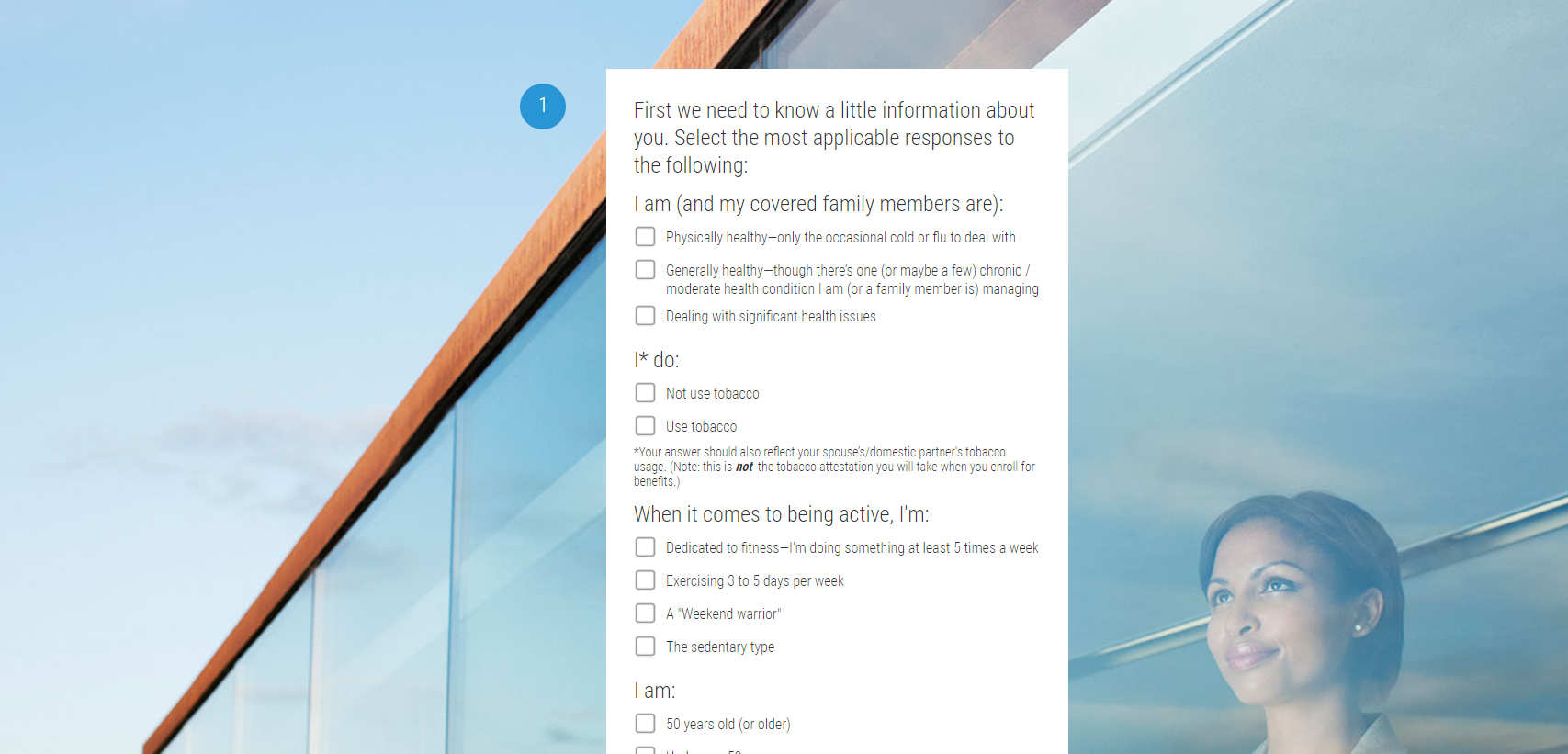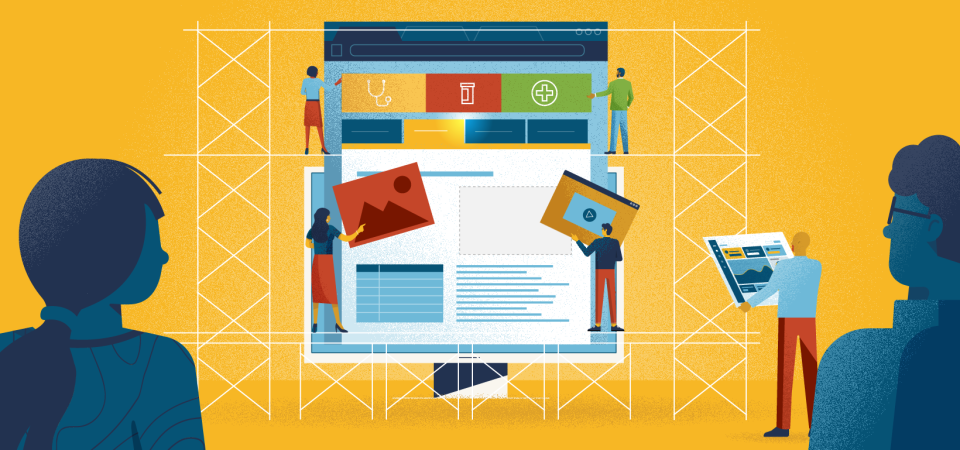
Digital tools like decision support quizzes help employees make confident benefit selections while easing the workload of HR teams.
As important as benefits are to employees, it’s surprisingly hard to choose the right ones. There’s a ton of information to sift through, health considerations to evaluate, not to mention the crystal ball and psychics you need to consult as you predict what medical emergencies you’ll need to be prepared for next year.
To ease the burden, employers use digital tools that help workers make better plan elections. One of our favorites is the benefits decision support quiz.
What’s a Benefits Decision Support Quiz?
As the name suggests this is a short quiz that asks employees pertinent health, finance, and lifestyle questions in order to offer relevant plan suggestions based on their answers. The goal is to help employees sift through the mountain of benefits information they won’t read anyway, to arrive at a decision they feel confident best fits their needs.
This can be deployed by itself or as part of a benefits microsite where employees can get more details on the plans being suggested to them. Either way, the end result is to lead employees to take action and enroll.

Why are They so Popular?
Simpler Decision-Making
Employees feel overwhelmed by the amount of benefit material they have to read through each year. It’s probably why only 52% of them really know what’s in their benefits package. Finding the right plan details that are relevant to their situation can sometimes feel like searching for the proverbial needle in the haystack. These quizzes help streamline the decision process by asking employees about the issues that affect which benefits are right for their situation.
Confidence in the Process
As benefits communications firm Segal Benz writes, “For many, enrolling in their benefits can be a confusing and complicated experience that can lead to making decisions based on gut feelings or past choices instead of rational thought.” But each question in a decision support quiz makes the choosing process transparent and logical, so employees can feel more confident about the validity of their results.
Easing HR’s Workload
If employees are confidently making their own benefits choices they are likely less reliant on HR for that kind of help. Fewer demands on HR’s time dealing with individual questions frees them up to work on more important tasks. Especially during the busy open enrollment period. As benefits support company MyHealthMath writes,
“Open enrollment is BUSY. Sharing benefit choices with employees requires being a master of communication, a hands-on teacher, and a beacon of support—that’s a whole lot to ask of a benefits team.”
Keeping Employees Updated
If the employer is running a passive open enrollment, most employees just roll over their benefits choices each year. Implying they’re not really paying attention to any plan changes, they’re just choosing the easiest option of sticking with the status quo. This runs the risk of employees missing out on any new offerings that could benefit them. Since decision support quizzes are designed to find the most suitable plan options, even if the employee’s answers are the same as last year’s, the results would reflect any benefits updates.
Easy to Maintain
These digital tools can be a perennial tool for benefits teams as once the quiz is created, updating it each year is a simple process. Philp Joyner, Paragon’s Chief Technical Officer writes,
“After the initial effort of creating one, revising them year to year doesn’t take as long. Usually, it is refining the logic a bit and updating benefits based on any offerings that have been changed.”





